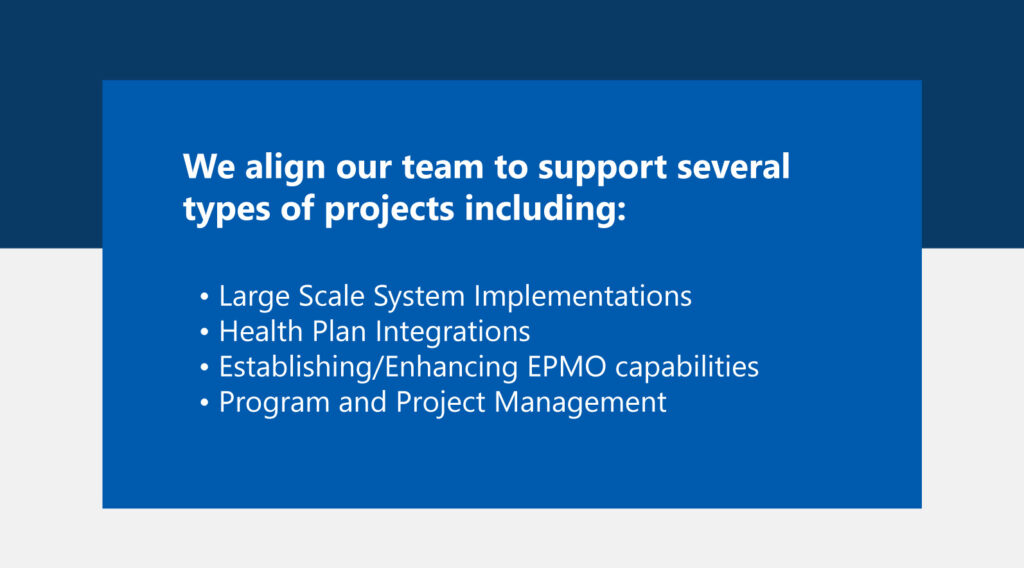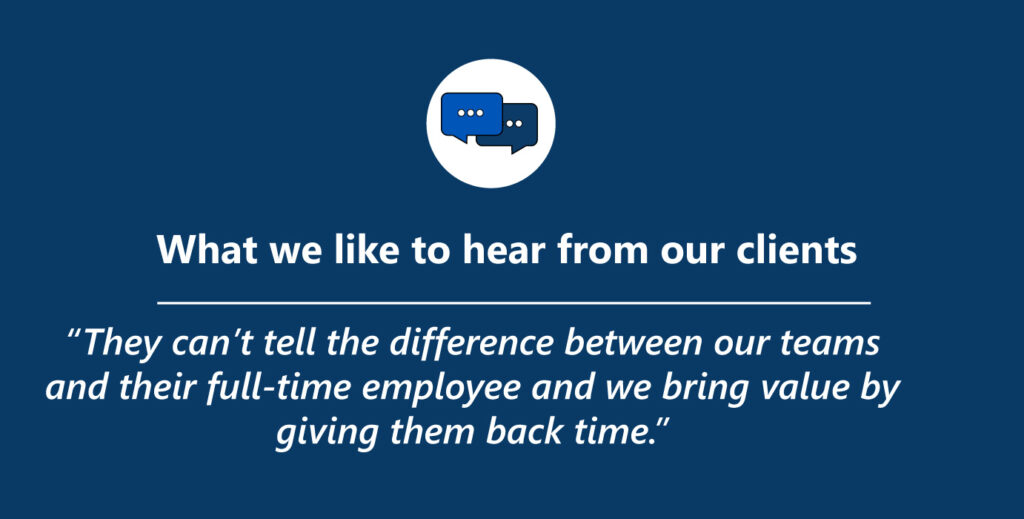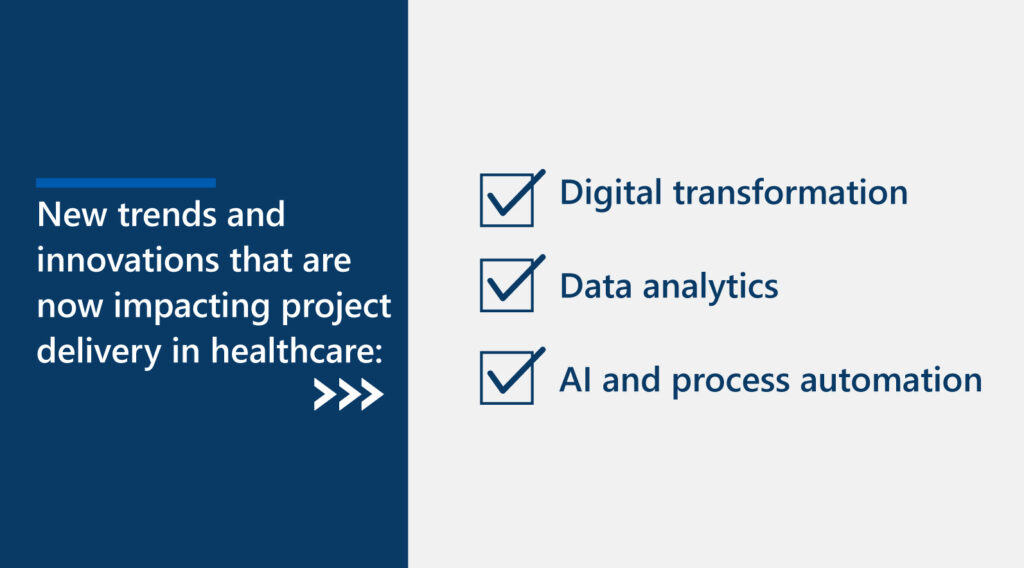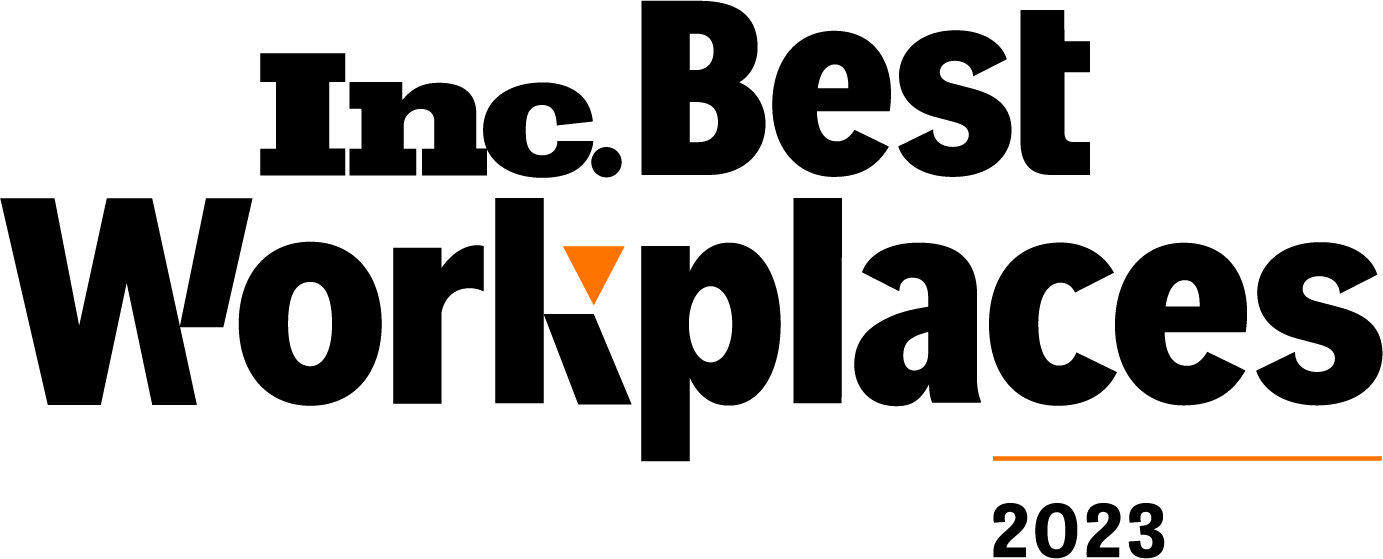Q&A with ProspHire’s Joshua Manning on Project Delivery
Let’s have a conversation
Healthcare is an industry that touches every one of our lives and behind the scenes there’s a complex world of projects and initiatives aimed at improving patient care. ProspHire’s Joshua Manning sheds light on the intricate world of healthcare project delivery.
Can you provide an overview of ProspHire’s Project Delivery practice and its role within healthcare consulting?
ProspHire’s Delivery Practice first and foremost is focused on the desired outcomes of our clients and providing the right level of expertise in terms of talent and experience. When a client engages ProspHire we seek to understand the need and then align our team to support several types of projects including Large Scale System Implementations, Health Plan Integrations, Establishing/Enhancing EPMO capabilities, as well as Program and Project Management. Our team consists of certified Project Management Professionals (PMP), Six Sigma Green Belt, Certified Scrum Masters, Product Owners who offer industry expertise in the payer and provider sectors.

What are some key challenges that healthcare organizations typically face when it comes to project delivery and how does ProspHire address these challenges?
Our work occurs with large health care organizations. Within these environments our goal is to partner with our stakeholders, understand their expectations and give them time back. All organizations are working with keeping their operations functioning, competing priorities/projects and resource constraints. Our Delivery practitioners utilize our delivery and industry expertise, allowing our stakeholders to focus on their numerous priorities.

Could you share a success story that highlights the impact of the Project Delivery practice on a healthcare client’s operations or outcomes?
One of our clients is currently going through rapid growth and transformation. With that comes the need to connect business and technical process/decision making and manage decisions/dependencies. The client engaged ProspHire to manage several of those programs and that required us to utilize our strong execution skills and also our strong relationships to identify risk and act as an extension of our stakeholders. What we like to hear from our clients is that they can’t tell the difference between our teams and their full-time employees and we bring value by giving them back time.
In the rapidly evolving healthcare landscape, how does ProspHire stay ahead of the curve in terms of project management methodologies and industry best practices?
We understand current methodologies with our current client mix. ProspHire collaborates with some of the largest healthcare organizations in the country and that entails many customized ways to deliver projects using agile, hybrid and waterfall methodologies. There are several factors that play a role in selecting a delivery methodology, from current capabilities of the organization to the people to the scale of the project. To keep up with the ever-changing delivery landscape, ProspHire invests in our Practitioners through continuing education and certifications through ProspHire University (PMP, Scrum, etc.).
What role does technology play in optimizing project delivery within healthcare organizations and how does ProspHire leverage technology in its consulting services?
Technology always plays a critical role in project delivery. From a macro level, this starts with an organization’s ability to manage strategic portfolios of projects that align to the long-term vision and goals. It’s key to keeping leadership informed on desired outcomes by continually tracking the demand, the portfolios, the capacity to support them as well as accurate KPIs to overall performance. At the project level, we utilize various Project Portfolio Management (PPM) applications to manage project status and financials for our clients.
Collaboration is crucial in project delivery. How does ProspHire develop collaboration among cross-functional teams within healthcare organizations to ensure successful project outcomes?
Working in any sized organization, project execution rarely impacts a single business area and with that highlights the importance of building trust and relationships. It is critical to understand how people like to communicate and their leadership styles and set clear expectations for the team’s relationship. Projects are not all filled with good news as dependencies, resource constraints and competing priorities also become a factor. Setting clear expectations and building a strong relationship up-front goes a long way to staying aligned and gaining respect with our clients.
Healthcare projects often involve complex regulatory and compliance requirements. How does ProspHire ensure that its clients navigate these challenges effectively?
Regulatory and compliance projects always start with an understanding of the requirements and how these requirements impact the current processes, workflow and technology. Even the smallest change impacts the business and with the heightened compliance or regulatory impact it’s critically important to establish strong collaborative governance models that hold people accountable, communicate an accurate status, empower the right people to make decisions and share a transparent risk assessment with clear mitigation strategies.
Can you share some insights into the skills and expertise that your Project Delivery practice team brings to the table to make a difference in healthcare projects?
At ProspHire, our practitioners have experience in Payor, Provider, Dental and even post-acute projects. That experience helps us work side by side with our business and technical stakeholders to inform decision making, provide recommendations and ultimately give our clients time back to focus on the business. In no way are we replacing our stakeholders, but rather allowing our experience to build the trust they seek when delivering projects. When working with subject matter experts in the industry, being able to understand their needs helps with remaining aligned on expectations and ultimately delivering for our clients.
Risk management is vital in any industry. How does the PMO identify and mitigate potential risks that could impact the success of healthcare consulting projects?
Risk management and communication are critical to managing a program/project and building trust with your clients. Risk is going to happen on every project and how that is documented and communicated is vitally important. Risk is not about calling teams or individuals out but rather a way to communicate what is causing the risk, the impact and the mitigation to manage the risk. By not sharing or communicating risks, it is likely going to grow into something more unmanageable thus further impacting the project and resources supporting the desired outcome. At ProspHire, we run towards the risk and aim to understand the root cause, the impact of the project and defining a clear strategy for managing the risk.

Looking ahead, what trends and innovations do you foresee shaping the future of project delivery in healthcare and how is ProspHire preparing to adapt to these changes?
Digital transformation, data analytics and AI and process automation are all new trends and innovations that are now impacting project delivery in healthcare. It is important that we understand the needs and capabilities of every organization we work with to gauge their ability to evolve. At ProspHire, we are continuously training and upskilling our practitioners in emerging technologies and healthcare trends. We collaborate with technology companies and healthcare providers to develop innovative solutions that help to stay current with industry developments and we tailor solutions to the unique needs and challenges of every healthcare client.
ProspHire will work with you to understand your unique circumstances and identify the best methods to achieve your goals. Connect with us today to learn more.
ProspHire
216 Blvd of the Allies, Sixth Floor
Pittsburgh, PA 15222
412.391.1100
[email protected]
Quick Links
© 2024 ProspHire, LLC. All Rights Reserved / Terms of Use / Privacy Policy









